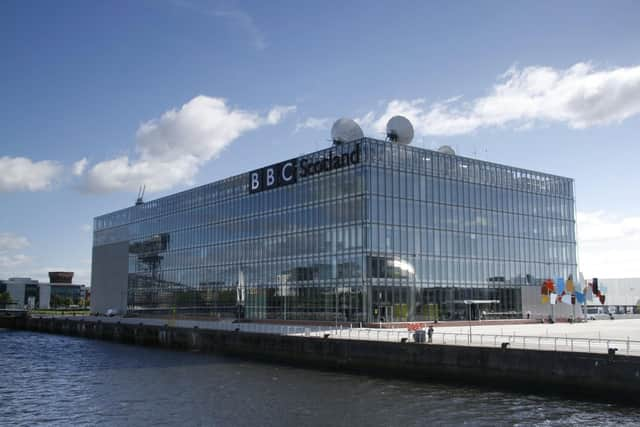BBC Scotland: End of The Nine was inevitable given its dwindling audiences - Brian Ferguson
When a brand new BBC Scotland channel made its debut years ago, there was one show that attracted the bulk of the attention.
The Nine was the flagship news and current affairs offering from the corporation’s headquarters in Glasgow.
Advertisement
Hide AdAdvertisement
Hide AdLike the channel itself, the hour-long show was around two years in the making, after then director general Tony Hall announced £19 million worth of new investment north of the border. But the origins of The Nine can be traced back more than a quarter of a century.


Scotland securing its own Parliament was the catalyst for a prolonged debate on the BBC’s output in Scotland – and in particular its news coverage.
This was – and to an extent still is – dominated by the case for a so-called "Scottish Six”, a new made-in-Scotland show to replace the Six O’Clock News north of the border.
The BBC took most of its own staff by surprise in 2017 when it announced plans for both a “Scottish news hour” – tackling stories from Scotland, the UK and the world – and the new channel on the same day.
That announcement, and the creation of 80 new jobs, also wrong-footed the Scottish Government, following years of criticism of Scottish programming and priorities.
It is somewhat ironic, then, for BBC Scotland to announce the dropping of The Nine, as part of a shake-up of its news and current affairs output, at a time of renewed scrutiny over its performance and future.
It is only a few weeks since the Scottish Government unveiled new proposals for the creation of a public sector broadcaster in an independent Scotland to “better reflect and prioritise the specific needs and interests of Scottish audiences”. Its blueprint suggested a BBC-style licence fee model was the “best option” for funding a new TV, radio and online service in Scotland, but raised many possible implications for BBC Scotland.
Advertisement
Hide AdAdvertisement
Hide AdThe Government blueprint appeared shortly after a grilling of senior BBC executives at Holyrood, including intense scrutiny of The Nine’s viewing figures, following reports that audience numbers for some editions had dropped below 2,000.
Confirmation of The Nine’s demise – and its replacement with a half-hour programme going out on the channel directly after Reporting Scotland on BBC One – inevitably triggered a new round-up of political football over the corporation’s commitment to Scottish affairs and the level of interference from the Scottish Government.
What was telling was the genuine sadness at the loss of a show that had been an important addition to the landscape of Scottish broadcasting, not least thanks to the on-screen talent it has showcased and its in-depth analysis of major issues.
The blunt truth, however, was the audience for The Nine was simply not enough to justify the level of resources being devoted to a programme with just a few thousand viewers. The growing audiences for podcasts and the ability to use the content they generate across multiple platforms has driven the idea of replacing The Nine with a new current affairs show.
The rationale for a 7pm news show right after Reporting Scotland appears less clear. But in an era where BBC Scotland has to get the best possible results from its limited resources, the status quo was simply not an option.
Comments
Want to join the conversation? Please or to comment on this article.
